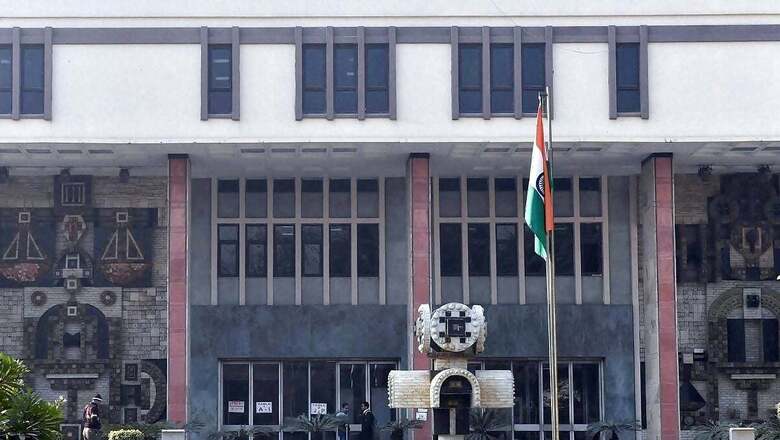
views
The Delhi High Court on Wednesday rejected the petition of former Religare promoter Shivinder Mohan Singh seeking permission to travel abroad for the graduation ceremonies of his two sons. The court emphasised that while attending the graduation ceremony was a unique and emotionally significant experience for a father, national interests must take precedence. The court highlighted the need to protect stakeholders who have incurred financial losses in REL and other companies.
The bench of Justice Dharmesh Sharma held, “Indeed, attending the graduation ceremony of his son, which event is a once in a lifetime experience, is a momentous occasion in one’s life and the sentiments of fatherly love for the son cannot be brushed aside, but the same has to be given way in order to further the paramount national interest and fundamentally safeguard the interests of the stakeholders who have been deprived of their hard earned investments in ‘REL’ and other companies”.
Shivinder Mohan Singh filed a petition challenging the order of the trial court that denied his request to suspend a Look Out Circular (LOC) and permit him to travel abroad. Represented by senior advocate Amit Sibal, Singh sought to attend his sons’ graduation ceremonies in the UK.
The court observed that the records demonstrated that the Serious Fraud Investigation Office (SFIO) had investigated the affairs of FHL, REL, and their associated or sister concerns, utilising its full powers under Section 212(4) of the Companies Act, 2013, in the greater public interest. This investigation was initiated due to allegations of fraud, misappropriation, and siphoning of funds through various conduit companies, ever-greening of loans from financial institutions, and alleged losses suffered by the companies and the public.
The court observed that Singh was a promoter of REL, holding a 16.31% shareholding through RHC, where he served as a non-executive director. Later, he held the roles of non-executive director and vice chairman and was also the managing director of FHL. Thereafter, he held the position of director, thereby controlling and managing the key operations of REL and FHL. It was apparent that the alleged cases of misappropriation and siphoning of funds occurred during his tenure in these capacities, resulting in assessed losses of approximately Rs 3,780 crore and Rs 450 crore to REL and FHL, respectively.
Additionally, the court noted that a tripartite agreement was entered into between RCH Holding Limited, REL, and RCML, according to which RCH Holding Limited was required to provide financial support to RCML for its financial commitments. The terms of this agreement were seemingly detrimental to the interests of REL, a public company. The books of account and numerous documents concerning 37 subsidiaries of the REL Group of Companies since 2013-14 have been subject to investigation, with some of these companies based in the USA, Singapore, Sri Lanka, and Mexico, in addition to the UK and Mauritius.
“The aforesaid narrative coupled with the documents placed on the record invite a strong inference that the petitioner has a huge financial base outside India and he has not come to the Court with clean hands and that by itself disentitles him to grant of any discretionary relief,” the HC highlighted.
The court further added, “Prima facie it appears that the petitioner has sizeable assets and properties, directly or indirectly, outside India in foreign jurisdictions as discussed hereinabove and there is a strong inference that if liberty to go abroad is granted to him, he may not come back to India to face the investigation and trial, as and when it commences.”
The court denied Singh’s arguments that he could ensure adequate security by nominating a family member residing in India. Despite acknowledging that Singh’s mother and mother-in-law already reside in India, the HC dismissed this assertion as superficial and illusory.
Consequently, the court determined that Singh’s request to attend his sons’ graduation ceremonies abroad could not be granted. There were substantial grounds to believe that granting such permission might result in misuse, potentially allowing Singh to evade returning to India. This could undermine ongoing investigations and legal proceedings, said the court.

















Comments
0 comment